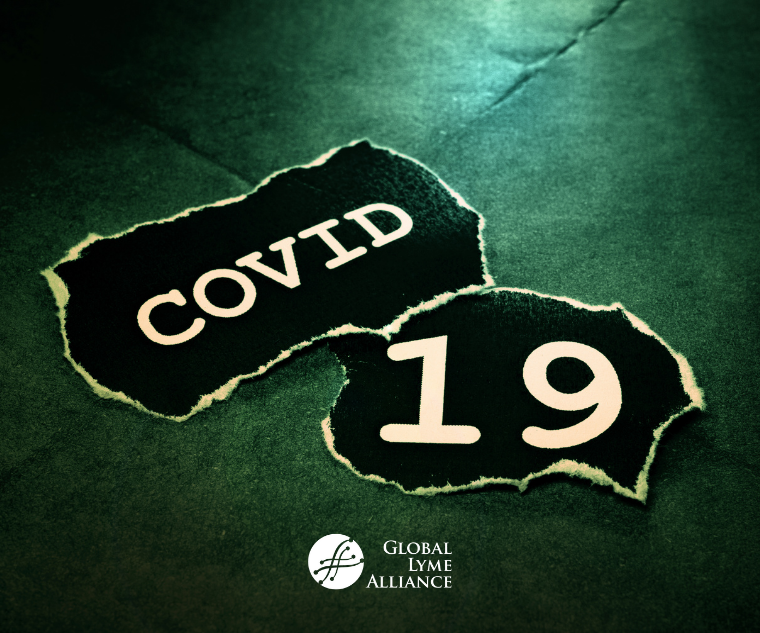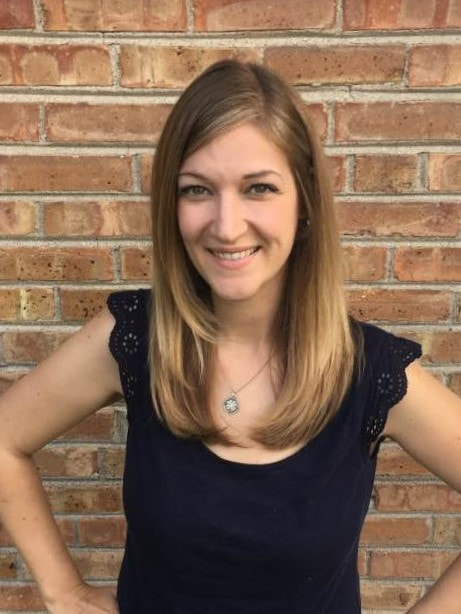|
This article was first published on the Global Lyme Alliance blog on January 8th, 2021. Most of the links on this post are informational, but a few are affiliate links to help maintain this website. There is a new chronic illness emerging throughout the world. People with this illness are being referred to as "COVID-19 long haulers." The term is used to describe COVID-19 patients with ongoing and persistent symptoms, such as fatigue, brain fog, joint pain, increased heart rate, and decreased lung function. Coincidentally, the term is applicable to those of us with chronic Lyme disease. We’re "long haulers," too—just infected with a different pathogen. Even though it's common knowledge that COVID-19 long haulers exist, there is a public perception that if you are lucky enough to beat the virus you are "fine." Eventually, the pandemic will pass, but the long haulers will remain, and my fear is they will be forgotten. Why such a cynical view? Because I live with a chronic illness and I know what it’s like to be forgotten. But don't lose hope. There are millions of us with chronic pathogenic illness who see you. We will welcome you into our community and encourage you to create a community of your own. A little history, Lyme disease is similar to COVID-19, because some people have acute illness and others develop chronic illness. People with chronic Lyme disease are misunderstood by conventional medicine. Their symptoms are labeled as "Post-Treatment Lyme Disease Syndrome" and there is no conventional treatment or cure. Despite the growing number of people suffering long-term symptoms from tick-borne disease, few resources are allocated to finding a treatment. My hope is that with the number of people who have been infected with COVID-19 and the worldwide focus, that more resources will go to finding treatment for long haulers. Treatment developed for long haulers may also shed light on treatment for other chronic pathogenic illnesses. While there is still much to learn about how COVID-19 will affect people in the long term, others with long term pathogenic illness may be able to shed some light on how to live with ongoing symptoms. One of the most difficult things about chronic illness is that most chronic illnesses are "invisible." This doesn’t necessarily mean that you look healthy, it means that you cannot see how bad you feel just by looking at you. When you have invisible illness, it is common for friends and family to not understand what you are coping with on a daily basis. This is something that Lyme disease patients experience frequently. We learn to find ways to explain our symptoms, like encouraging friends and family to read articles about the disease, although it is typically still not understood. We often say, "You don’t get it, until you get it." If you ever feel like you have been left behind, know that people with Lyme disease see you and understand you. The following is some advice for you as you continue on this journey: 1. Create a Community. The most important thing with any chronic illness is to not go it alone. As a means of survival, many of us with chronic Lyme disease find our way to each other. The Lyme disease community is a thriving, supportive place that many people with Lyme disease eventually find out of desperation. You may not know anyone else who is experiencing long-term COVID-19 symptoms, so you will likely need to seek them out. Lyme patients find each other on Facebook groups or other social media. We meet in local or virtual support groups. We follow prominent doctors in the field, advocates, and organizations, which hopefully in the years that follow will emerge for long haulers. There is something comforting about knowing you are not the only person going through something difficult. 2. Learn to listen to your body. Another thing to pay attention to is how your symptoms wax and wane. People with Lyme disease and other chronic conditions learn to titrate our energy. When we are feeling good (relatively speaking), we try to take advantage of it. When we are fatigued and in pain, we work to find acceptance about our limited capacity and give ourselves permission to rest. Remember that you know your body the best and even though you are just getting to know your body with chronic issues, you will learn to become intimately aware of your sensations and symptoms. Slowly learning what needs immediate attention and what can wait until you see your doctor again. Additionally, I’ve learned to write these things down as they happen, because they are much harder to recall when your doctor asks you what you’ve been experiencing, especially with brain fog. 3. Be politically active. As a Lyme long hauler, we have found ways to keep the focus on finding a treatment, long after the outbreak in Lyme, Connecticut. We have advocates and organizations that provide funding for ongoing research. We have doctors who are willing to consider things outside of conventional medicine and those within the system who are willing to think outside the box. The "good" news for COVID-19 long haulers is that it appears the scientific community is acknowledging the virus causes chronic symptoms in some who are infected. The not so good news is that researchers and infectious disease doctors do not have a good understanding of chronic pathogenic infections. Maybe COVID-19 long haulers will be the push we need to see change. The Lyme community is known for being vocal, likely out of necessity to be heard and acknowledged. Without the advocacy work of individual Lyme patients and Lyme organizations we would still be suffering in silence. 4. Allow yourself to grieve. Many of us with Lyme wonder what life would be like if we had never been bitten by a tick. I can imagine right now COVID long haulers are wondering what life would be like if they had never been infected with the virus. Of course, these things are outside of our control and that's why they need to be grieved. We can’t go back, but we can allow ourselves time and space to grieve the loss of what life used to be like. Maybe this looks like crying, journaling, or talking to a therapist. Whatever you need to grieve, find it. 5. Don't lose hope. A life with a chronic condition is a valuable life. There are still moments good in most days, there are still possibilities, and a future ahead of you. Yes, it looks very different and that is painful to know, but there is always hope. Having a chronic illness requires holding opposing truths at the same time. Contracting chronic Lyme disease has been my greatest burden and my biggest teacher, it has taken so much and also given so much to me. Part of learning to live with chronic illness is learning both can be true at the same time and giving space for both to be a part of you. As the world continues to reel from the global pandemic and you continue to suffer from the fallout, know there are people who care about you and are thinking about you. "Empathy is finding echoes of another person in yourself." - Moshin Hamid
0 Comments
|
WelcomeI'm Kerry (She/Her/Hers) and I am a licensed therapist, group facilitator, poet, writer, & speaker. This is a place to acknowledge and validate our suffering and trauma, while also learning how to turn toward aliveness and spaciousness. Categories
All
Archives
April 2024
|
|
Copyright © 2024 Kerry J Heckman All rights reserved. Disclaimer.
|
|


 RSS Feed
RSS Feed